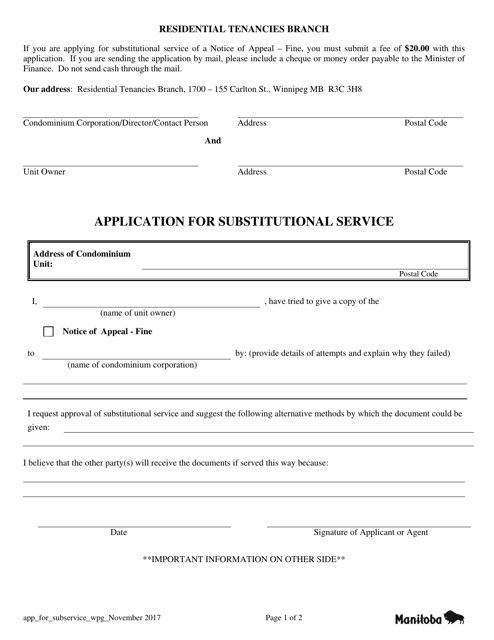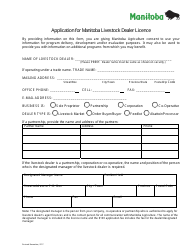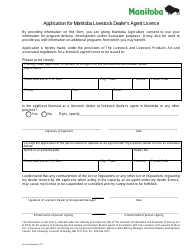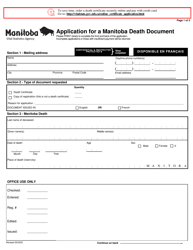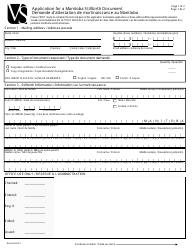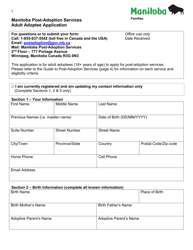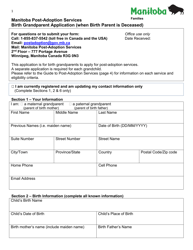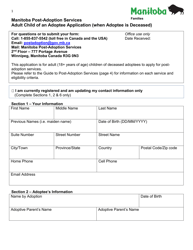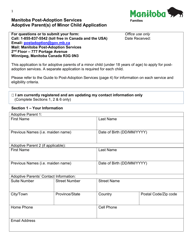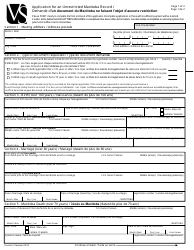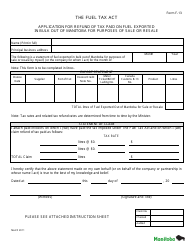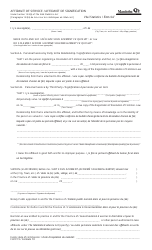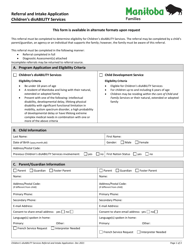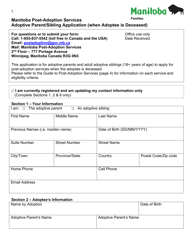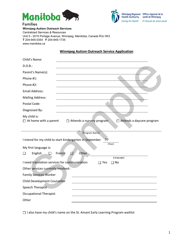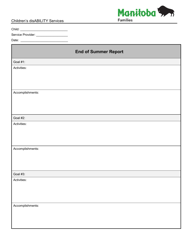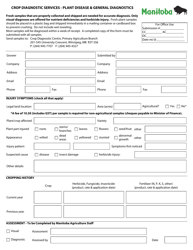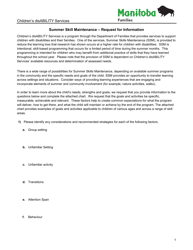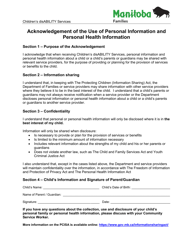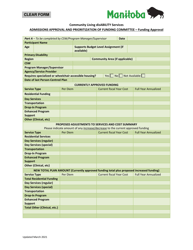Application for Substitutional Service - Manitoba, Canada
The Application for Substitutional Service in Manitoba, Canada is used when someone needs to serve legal documents to another party but cannot do so in person. This application allows the court to authorize an alternative method of service, such as delivering the documents to a person's workplace or mailing them to their last known address.
In Manitoba, the person who is filing the application for substitutional service is typically the plaintiff or the person bringing the legal action.
FAQ
Q: What is an application for substitutional service?
A: An application for substitutional service is a request made to the court in Manitoba, Canada to allow a legal document to be served on a party in a different way when traditional methods of service are not possible.
Q: When would someone file an application for substitutional service?
A: Someone would file an application for substitutional service when they are unable to serve a legal document on a party in the usual or required manner, such as by personal delivery or registered mail.
Q: What are some reasons for needing substitutional service?
A: Some reasons for needing substitutional service may include the party being intentionally evasive or difficult to locate, or if the party's whereabouts are unknown.
Q: How is an application for substitutional service filed?
A: An application for substitutional service is typically filed with the court where the legal proceeding is taking place. The applicant must complete the necessary forms and provide supporting evidence.
Q: What happens after an application for substitutional service is filed?
A: After an application for substitutional service is filed, a judge will review the application and supporting evidence. If satisfied that traditional service methods are not possible or appropriate, the judge may grant the application.
Q: What methods of substitutional service are commonly used?
A: Methods of substitutional service may include posting the document on the door of the party's last known address, mailing the document to their last known address, or serving the document through a third party, such as a family member or neighbor.
